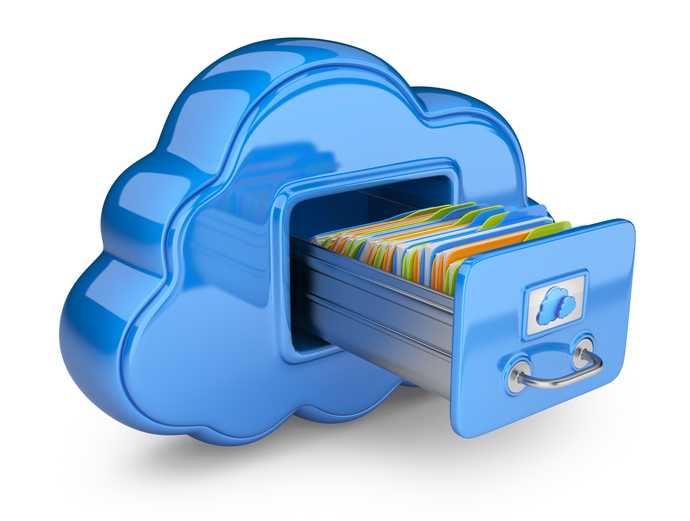The Physical Limits of Digital Space
Thirty gigabytes. It does not seem like a lot in 2018, because computer storage has grown to enormous sizes. Even just 10 years ago, in 2008, thirty gigabytes was unfathomable; the first iPhone released in 2007 had only four gigabytes of storage. Now, desktop computers can hold thousands of gigabytes, We are constantly downloading, creating, and deleting files on our devices as we continue to get closer and closer to these once unimaginable limits for computer storage. Sometimes we download a file and use it daily, such as an app or a game. Other times, we download a photo to our phone or computer, possibly with the intent to show it off, only for it to get lost in the wastelands of hundreds and thousands of other photos we load onto our devices. When we hit these limits of hundreds, and thousands of gigabytes, we try to delete as many of our abandoned files as we can, without realizing that we may have never needed them in the first place. With files, software, photos, and videos rapidly increasing in size, and new devices coming with increased storage to match, older devices with less available storage will go from having thirty gigabytes, to twenty, to ten, and struggle to keep up if they host too many abandoned files. Likewise, the Cloud and its users do not benefit from our unsustainable file hoarding problem, as all of the files we upload to the cloud are causing pollution by server farms, and increasing our collective carbon footprint.
In my everyday use of my computers (phone, laptop, desktop) I find myself downloading files often. These can be anything from new software, software updates, or code libraries to games, pictures, or videos. Every once in a while, I will download new software or games that I use daily, or at least often enough to justify keeping them. Unfortunately however, most of the files I download are lost to time, and most end up staying on my device for a really long time, as I will simply forget about them and take advantage of the fact that I have lots of storage space to hold on to them. This becomes a problem as my devices get older as well; they are hosting years of content and a good 80% of that is unused. My laptop for example, gets used every day, but I have very limited storage space on it. This laptop only has thirty gigabytes to work with, and half that space is taken up by files necessary for it to run, so I have to be very careful about what I absolutely need, and what I have to get rid of. One day, when clearing these files out, I realized that the bulk of my storage space was getting taken up by a program I had downloaded in the past, used one time (or maybe even not at all), and never deleted. My system was collecting garbage programs, plus all of the excess programs that came together to make them work. In deleting these programs, I decided that if I could not remember the last time I had used it, it had to go. I had to choose an aggressive deletion policy to enforce on myself because the reason that I kept so many of these old programs was “just in case.”
I frequently find myself keeping a program, file, picture, video, etc. “in case I ever need it.” I feel that this reasoning creates the most digital garbage out of anything because if we did not have the urge to keep a file “just in case”, why would Google Drive, or Dropbox be used so often in our daily lives? We have progressed to a point in technology where we use so many files that our own physical devices cannot hold them, so instead we transfer them to The Cloud, which is really just someone else’s bigger computer. We create more and more copies of our files, as if we have infinite space, when in reality we are using practices that are unsustainable for both our local system and the Cloud as a whole. If we were simply limited to one area of storage space per device, there might be far less digital garbage in the world, as people would eventually just delete a file that had not been used in years. That is not to say we should get rid of everything we have ever owned, but many more files and programs than we like to admit are only being used for one purpose, one time, and then abandoned because they are no longer necessary. A more sustainable and system-friendly way of looking at this problem might be: if you haven’t used a file in over a month, or can’t even remember when you used it, chances are you do not need it. Keeping files from getting abandoned will probably drastically decrease the amount of digital garbage we see in the world, and perhaps even decrease our seemingly necessary use of cloud storage. The important thing is to be very aggressive in deleting files, and really take advantage of available physical space above all else.
With so many unused and abandoned files taking up so much of our storage space, it is hard to see what is necessary in a computing environment and what is not. Abandoned files could be hurting the system by taking up space locally or on the cloud. Perhaps even, an abandoned file will be rediscovered by someone going through their old files, and it will become a daily useful file again, all because the person had forgotten about it. By getting rid of our abandoned files and programs often, we can reduce the amount of digital trash we introduce into our computer systems, and the rest of the world.
